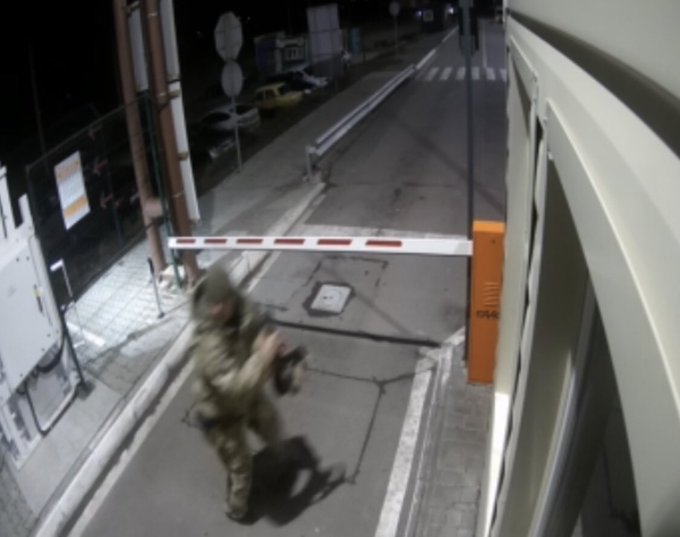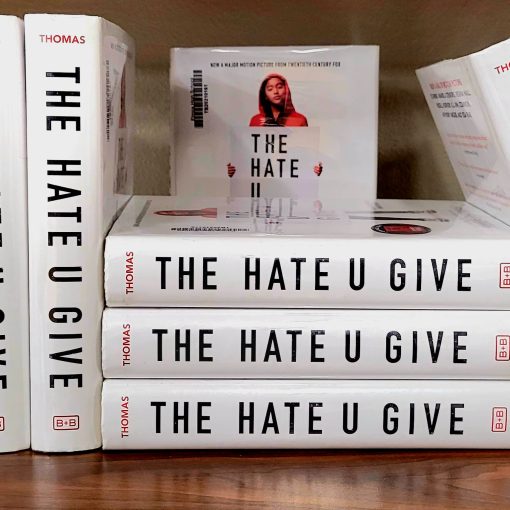“This is the beginning of a Russian invasion of Ukraine,” Joe Biden said at about 11 a.m. Monday. This is in response to a recent move by Russian President Vladimir Putin on Monday to send military forces into Ukrainian territory in Luhansk and Donetsk, two regions of the country partially controlled by Russian-backed separatists which declared independence just hours before Russian soldiers moved in to reinforce them.
In response, President Biden, speaking on behalf of the United States and its European allies, promised to impose sanctions on Russia “far beyond” the response to Russia’s annexation of Crimea, another Ukrainian territory in the East of the country which was taken over by the Russian Federation in 2014. These new sanctions will include, according to President Biden, “full blocking sanctions” against the VEB & the Russian Military Bank, as well as sanctions against the Nord Stream 2 oil pipeline from Russia to Germany.
Tensions continued to rise on Wednesday, as reports affirming one another from officials in Australia, Latvia and the United States confirmed that their intelligence sources point to a “full-scale invasion” of Ukraine being imminent. In preparation for what seems likely to be a war, Ukraine has declared a state of emergency in order to give the government a heightened ability to attempt to secure the country.
Eventually, U.S. intelligence was vindicated in their claims, as around 7:00 p.m on Wednesday, Russian President Putin declared war. Multiple sources report that Russian troops have begun a ground invasion, entering Ukraine from Belarus, a country allied with Russia. Russian artillery and aircraft have begun a bombing campaign which has struck multiple key civilian and military targets, including airports in cities such as Kyiv, the capitol of Ukraine. Hundreds of casualties were reported by the Ukrainian government early on in the course of the invasion. The Ukrainian Border Guard has released footage showing Russian armored vehicles crossing from the occupied Crimean peninsula into the Ukrainian mainland. Hours later, the Ukrainian government confirmed the deaths of forty soldiers and and unknown number of civilians.

Multiple war crimes have been allegedly committed by the Russian Armed Forces during their illegal military actions in Ukraine. A viral video shows what appears to be white phosphorus, a chemical agent which burns in air and is highly toxic to humans. While there are legal uses of white phosphorus, it is illegal under Protocol III of the Convention on Certain Chemical Weapons to be used as an incendiary device in an area with a heavy concentration of civilians, which some claim is demonstrated in the video.
At 1:20 a.m. Thursday, the Ukrainian Military reported six Russian aircraft destroyed, four Russian tanks burned on the road to the city of Kharkiv, and fifty Russian soldiers killed near Luhansk. On the contrary, Russian state media has claimed that Ukrainian “servicemen are leaving their positions en masse and abandoning weapons” in the wake of Russian forces rolling into the country. From this, it is clear that the propaganda machines of both countries are fully in motion, with each side attempting to paint the war in the most positive light so as to keep morale up. It is unlikely that we will get truly accurate data on this war for days to come, or until it ends, as sensitive information such as troop movements and casualties are matters of national security and will be kept secret from civilians to the best of the abilities of the Ukrainian and Russian governments alike.
Further sanctions have been leveled against Russian leaders in order to financially cripple the country’s leadership. The United States has effectively cut Russia off from the US Dollar, forbidding US financial firms and individuals from lending money to the Russian government. The European Union, for their part, have promised to level yet more sanctions against Russia.
So, the major question for many Americans is: How will all these rising international tensions affect us?
It must first be made clear that the fears propagated on social media of this being the catalyst to World War III are completely without merit. People making claims that there is a serious threat of war are either being dishonest or genuinely misinformed. While the possibility of nuclear annihilation is always technically on the table, it is not much more likely today than it was last year. The United States will not escalate this to a global-scale conflict.
So, what will happen?
One immediate effect which may immediately be felt could be a rise in oil prices. According to NPR, prices for oil rose Tuesday to roughly $100 per barrel, and later on Wednesday even surpassed that mark. This has translated into fears of rising gas prices for Americans, as Europeans see prices for them have already increased by 30%. President Biden, for his part, has promised to help soften the blow to US oil prices, which some worry could rise to $4 per gallon.
While it is hard to be certain what the outcome of this war will be, it is certain that life will never be the same for the people of Ukraine. Citizens, even in Ukraine’s once shining city of Kyiv, are now in desperate flight from the crumbling, flaming ruins of what once was their home. While the Russian economy reels from the consequences of their own misdeeds, the Ukrainian economy will be left decimated. It is unlikely that deaths will end until the Ukrainian civilian government collapses. Many civilians and military officials in Ukraine have indicated their intentions to wage a guerilla war after traditional warfare fails to stave off the Russian advance, with many analysts predicting the situation to resemble the American intervention in Afghanistan. Russia, for their part, will likely be far more brutal than the US was in its occupation of Afghanistan, as American Intelligence reports indicate that Russia has plans to kill or jail political dissidents, ethnic minorities, LGBTQ people and more groups despised by the Russian regime.
In summary, while the Russian military is set to steamroll the nation of Ukraine, and no American soldier will be a casualty of this war, Ukraine is not the only loser. The economic fallout for this war will be felt worldwide, as especially in Russia but also in the West. What’s more, Russia’s aggression may potentially damage the ability of peaceful diplomacy to resolve future disputes, leading to further death and bloodshed down the line.





